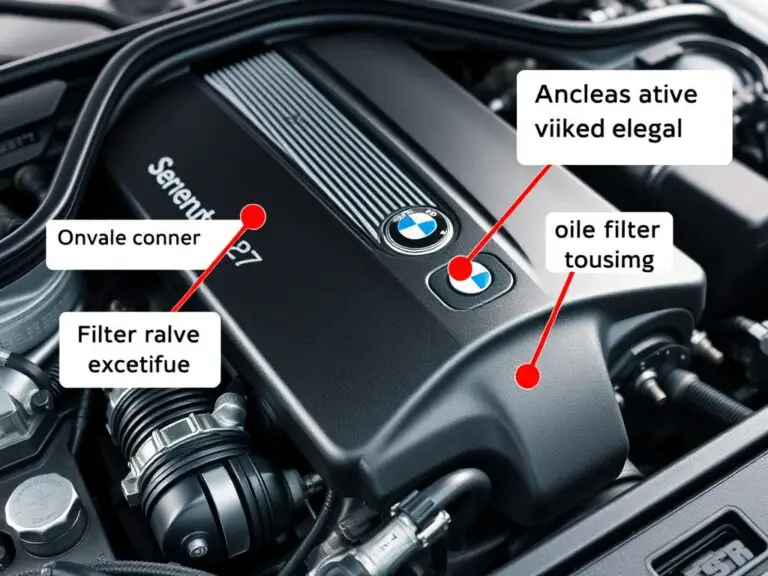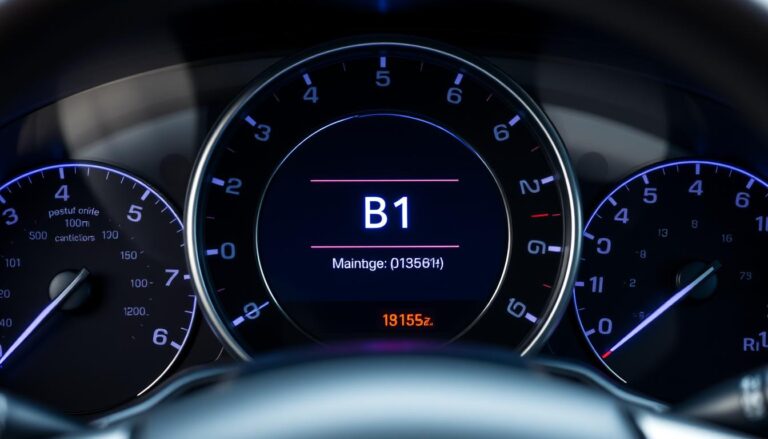BMW vehicles are renowned for their performance, luxury, and engineering excellence. But how many miles can a BMW last? With proper care and maintenance, many BMW models can exceed 200,000 miles, with some even reaching the 300,000-mile mark. Understanding what affects your BMW’s longevity and how to maximize its lifespan can help you enjoy your ultimate driving machine for many years to come.
In this comprehensive guide, we’ll explore the factors that influence BMW longevity, average mileage expectations for different models, and essential maintenance practices to keep your BMW running at its best for as long as possible.
Understanding BMW Longevity: How Many Miles Do BMWs Last?
Many well-maintained BMWs can exceed 200,000 miles with proper care
BMW builds vehicles designed for long-term performance. With proper maintenance, many owners report driving their BMWs well beyond 200,000 miles. Some models have been known to reach 300,000 miles or more while maintaining their signature driving dynamics and comfort.
However, the actual lifespan of your BMW depends on several factors, including the specific model, how well it’s maintained, and your driving habits. Understanding these factors can help you maximize your BMW’s potential longevity.
Key Factors That Affect How Long a BMW Will Last

Several key factors influence how many miles your BMW can last before major repairs become necessary:
Maintenance Schedule
Following BMW’s recommended maintenance schedule is crucial for longevity. Regular oil changes, fluid checks, and timely replacement of wear items like brake pads and rotors can significantly extend your vehicle’s life.
BMWs typically require service every 10,000 miles or annually, whichever comes first. However, many BMW specialists recommend more frequent oil changes (every 5,000-7,500 miles) for maximum engine protection.
Driving Habits
How you drive your BMW greatly impacts its lifespan. Aggressive driving with frequent hard acceleration and braking puts additional stress on the engine, transmission, and suspension components.
Short trips can also be detrimental, as they don’t allow the engine to reach optimal operating temperature. Highway miles are generally easier on your BMW than stop-and-go city driving.
Environmental Factors
Climate and road conditions play a significant role in your BMW’s longevity. Vehicles in harsh winter environments with road salt exposure face accelerated corrosion risks. Similarly, extreme heat can put additional strain on cooling systems and electronics.
Quality of Parts and Service
Using genuine BMW parts or high-quality OEM alternatives is essential for maintaining performance and reliability. Having your BMW serviced by qualified technicians who understand the brand’s specific requirements can prevent costly issues down the road.
“The difference between a BMW that lasts 100,000 miles and one that exceeds 250,000 miles often comes down to how well it’s maintained and how it’s driven.”
Average Mileage Expectations for Different BMW Models

Different BMW models have varying reliability profiles and expected lifespans. Here’s what you can typically expect from popular BMW series:
| BMW Model | Average Lifespan (Miles) | Notable Strengths | Common Maintenance Needs |
| 3 Series | 200,000 – 250,000 | Robust inline-6 engines, balanced design | Water pump, valve cover gaskets |
| 5 Series | 150,000 – 200,000 | Comfortable ride, durable powertrains | Electronic components, suspension |
| X5 | 150,000 – 200,000 | Sturdy construction, reliable drivetrains | Air suspension, transfer case |
| 7 Series | 150,000 – 180,000 | Luxurious build quality, smooth engines | Complex electronics, air suspension |
| X3 | 180,000 – 220,000 | Practical size, reliable components | Cooling system, oil leaks |
It’s important to note that these are average expectations. Many BMW owners have reported significantly higher mileage with proper care and maintenance. The key is addressing issues promptly before they develop into more serious problems.
Keep Your BMW Running at Its Best
Regular maintenance is key to maximizing your BMW’s lifespan. Our factory-trained technicians use genuine BMW parts to ensure optimal performance.
BMW Longevity: Gasoline vs. Diesel Engines

When considering how many miles a BMW can last, the engine type plays a significant role. BMW offers both gasoline and diesel engines, each with different longevity characteristics:
BMW Diesel Engines
- Typically last 200,000-300,000+ miles with proper maintenance
- Built with stronger internal components to handle higher compression
- Better fuel efficiency and lower RPM operation reduces engine wear
- Excellent torque for highway driving reduces strain
- Models like the 335d and X5 35d are known for exceptional longevity
BMW Gasoline Engines
- Generally expected to last 150,000-200,000+ miles
- Typically require more frequent maintenance
- Higher RPM operation can increase wear on certain components
- Inline-6 engines tend to last longer than V8 configurations
- Newer turbocharged models require more attentive maintenance
BMW’s diesel engines, particularly the straight-six variants, have developed a reputation for exceptional durability. Many owners of diesel BMW models report reaching well beyond 250,000 miles with regular maintenance. The lower operating RPMs and robust construction contribute to their longevity.
However, modern BMW gasoline engines can also achieve impressive lifespans when properly maintained. The naturally-aspirated inline-six engines (like the N52) are particularly noted for their reliability, while the newer turbocharged engines require more diligent maintenance to reach high mileage.
Essential Maintenance Practices to Extend Your BMW’s Lifespan

To maximize how many miles your BMW can last, following these maintenance best practices is essential:
Regular Oil Changes
Change your BMW’s oil every 5,000-7,500 miles using the manufacturer-recommended grade. While BMW’s official interval may be longer, more frequent changes provide better engine protection, especially for turbocharged models.
Cooling System Maintenance
BMW cooling systems require attention every 60,000 miles. Replace the water pump, thermostat, and coolant to prevent overheating issues that can cause catastrophic engine damage.
Transmission Service
Despite BMW’s “lifetime fluid” claims, change your transmission fluid every 50,000-70,000 miles. This significantly extends transmission life and maintains shift quality.
Fuel System Cleaning
Direct injection engines benefit from fuel system cleaning every 30,000 miles to prevent carbon buildup on intake valves, which can affect performance and efficiency.
Suspension Inspection
Have control arms, bushings, and shocks inspected regularly. These components typically need attention between 60,000-100,000 miles depending on driving conditions.
Timing Chain Maintenance
While BMW timing chains are designed to last the engine’s lifetime, have them inspected at higher mileages (80,000+) as preventative maintenance, especially on N20/N26 engines.
BMW Maintenance Schedule for Longevity
- Every 5,000-7,500 miles: Oil and filter change
- Every 15,000-30,000 miles: Air filter, cabin filter replacement
- Every 30,000 miles: Brake fluid flush, fuel system cleaning
- Every 50,000-60,000 miles: Spark plug replacement, transmission service
- Every 60,000 miles: Cooling system refresh (water pump, thermostat)
- Every 80,000-100,000 miles: Timing chain inspection, suspension component check
Real-World Examples: High-Mileage BMW Success Stories

Many BMW owners have shared impressive stories of their vehicles reaching extraordinary mileage milestones. These real-world examples demonstrate how many miles a BMW can last with proper care:

Michael’s 2008 BMW 328i: 273,000 Miles
“I’ve maintained my 328i religiously with oil changes every 5,000 miles and addressed small issues before they became problems. The inline-six engine still runs smoothly, and I’ve only needed to replace the water pump, valve cover gasket, and some suspension components over the years.”

Sarah’s 2010 BMW X5 35d: 312,000 Miles
“My X5 diesel has been incredibly reliable for daily commuting and towing. I’ve kept up with all scheduled maintenance and used only quality diesel fuel. Besides routine maintenance, I’ve only needed to replace one wheel bearing and service the transmission once at 200,000 miles.”

David’s 2011 BMW 535i: 226,000 Miles
“Even with the turbocharged N55 engine, my 5 Series has been remarkably reliable. I’ve been diligent about oil changes every 5,000 miles and cooling system maintenance. The car still drives like new and has only needed typical wear items replaced.”
These examples demonstrate that with proper maintenance and care, BMWs can far exceed the average vehicle lifespan. While individual experiences may vary, these success stories show the potential longevity of well-maintained BMW vehicles.
Cost Implications of Long-Term BMW Ownership

Understanding the financial aspects of maintaining a high-mileage BMW is essential for owners looking to keep their vehicles for the long term. Here’s what to expect:
| Maintenance Item | Typical Interval | Average Cost | DIY Difficulty |
| Oil Change | 5,000-7,500 miles | $90-$150 | Easy |
| Brake Service | 30,000-50,000 miles | $300-$700 | Moderate |
| Water Pump Replacement | 60,000-90,000 miles | $600-$1,200 | Difficult |
| Valve Cover Gasket | 60,000-100,000 miles | $400-$700 | Moderate |
| Suspension Components | 80,000-120,000 miles | $800-$2,000 | Difficult |
While BMW maintenance costs are typically higher than average, they become more predictable at higher mileages. Most major components that are likely to fail will have already been replaced, leaving routine maintenance as the primary expense.
Cost-Saving Tips for High-Mileage BMW Owners
- Consider independent BMW specialists for maintenance after warranty expiration
- Learn to perform basic maintenance tasks yourself (oil changes, filter replacements)
- Use OEM or high-quality aftermarket parts rather than dealer-only components
- Address small issues promptly before they develop into expensive repairs
- Join BMW owner forums to learn from others’ experiences and maintenance tips
Many owners find that the cost of maintaining a high-mileage BMW is often less than the payments on a new vehicle. With proper budgeting for maintenance, keeping your BMW for 200,000+ miles can be a financially sound decision.
Expert Tips for Buying a Used High-Mileage BMW

If you’re considering purchasing a used BMW with high mileage, these expert tips can help you find a reliable vehicle with plenty of life left:
- Prioritize service history over mileage. A well-maintained BMW with 150,000 miles is often a better choice than a neglected one with 80,000 miles. Complete service records are invaluable.
- Get a pre-purchase inspection. Have a BMW specialist perform a thorough inspection before buying. The $100-200 cost could save thousands in unexpected repairs.
- Check for major maintenance items. Verify if timing chains, water pumps, and other critical components have been replaced at appropriate intervals.
- Research model-specific issues. Each BMW generation has known weak points. Research common problems for the specific model you’re considering.
- Examine for oil leaks. Check valve cover gaskets, oil pan gaskets, and oil filter housing for leaks, which are common in higher-mileage BMWs.
- Test all electronics. Ensure all features work properly, as electrical repairs can be expensive.
- Consider a Certified Pre-Owned BMW. These vehicles undergo comprehensive inspections and come with extended warranties, though they typically have lower mileage.
Red Flags When Buying a High-Mileage BMW
- Overheating history or coolant leaks
- Transmission slipping or harsh shifting
- Excessive smoke from the exhaust
- Multiple warning lights on the dashboard
- Significant oil leaks or low oil level
- Inconsistent maintenance history or long gaps between services
- Signs of accident repair or structural damage
A high-mileage BMW can provide years of enjoyable driving when chosen carefully. Focus on finding examples with documented maintenance history and address any minor issues promptly to prevent them from developing into major problems.
Conclusion: How Many Miles Can a BMW Really Last?
So, how many miles can a BMW last? With proper maintenance and care, most BMW models can easily exceed 200,000 miles, with many reaching 250,000 or even 300,000 miles. The key factors that determine your BMW’s longevity include regular maintenance, driving habits, environmental conditions, and addressing issues promptly before they escalate.
While BMWs may require more attentive maintenance than some other brands, their engineering excellence and driving dynamics make them worth the extra care for many enthusiasts. By following the maintenance best practices outlined in this guide and addressing wear items at appropriate intervals, you can enjoy your BMW for many years and hundreds of thousands of miles.
Whether you’re considering purchasing a high-mileage BMW or looking to extend the life of your current vehicle, remember that maintenance history and care are far more important than the number on the odometer. A well-maintained BMW with higher mileage often represents better value and reliability than a neglected low-mileage example.

